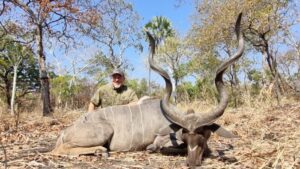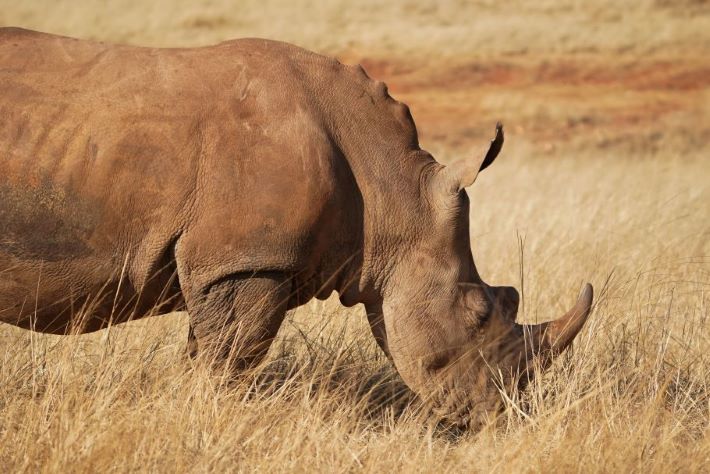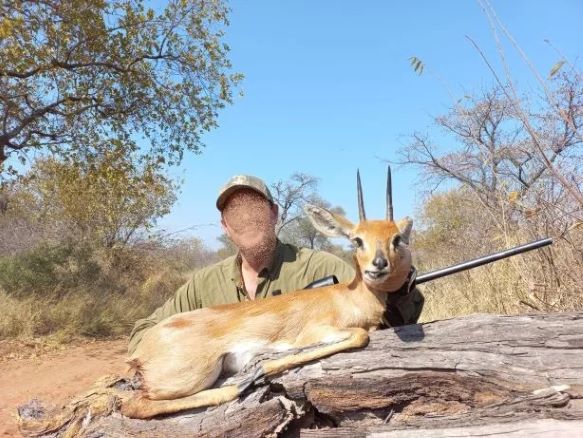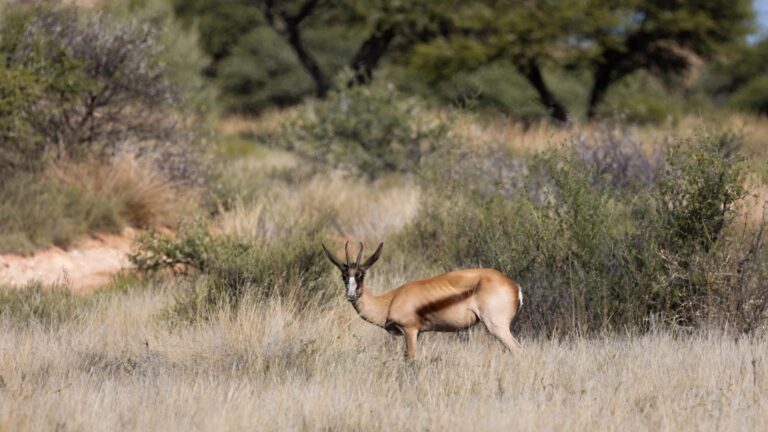When it comes to wildlife conservation, balancing preservation efforts with human activities like game hunting can be challenging. As technology evolves, we’re finding innovative ways to protect endangered species and manage ecosystems more effectively. Artificial intelligence (AI) is emerging as a powerful tool in this space, offering data-driven solutions to longstanding conservation issues.
From monitoring animal populations to predicting poaching risks, AI is changing how we approach wildlife management. By analyzing vast amounts of data, it helps us make informed decisions that benefit both wildlife and the communities that rely on these ecosystems. This technology isn’t replacing traditional methods but enhancing them, creating opportunities for more sustainable practices.
[DYNAMIC-BLOGTABLEOFCONTENT]
Key Takeaways
- AI enhances wildlife conservation by enabling advanced data analysis for monitoring animal populations, predicting poaching risks, and supporting informed decision-making.
- Artificial intelligence complements traditional methods, creating opportunities for sustainable ecosystem management rather than replacing established practices.
- Game hunting safaris can support conservation efforts when conducted ethically, with proceeds contributing to anti-poaching initiatives and local community development.
- Africa remains a prime destination for wildlife experiences, offering diverse landscapes, iconic species like the “Big Five,” and regulated hunting opportunities that promote biodiversity protection.
- Ethical practices are essential to ensure hunting activities align with wildlife preservation goals, minimize environmental impacts, and respect local cultures.
Understanding AI In Wildlife Conservation
The Relevance of Game Hunting Safaris
Game Hunting Safaris offer thrilling experiences for those passionate about hunting in some of the world’s most iconic landscapes. Africa stands out as the primary destination, boasting a rich diversity of wildlife, traditional hunting practices, and unique opportunities to engage with nature responsibly. From the “Big 5 African Game” to specific experiences like lion hunting in Africa, the region has become the ultimate destination for seasoned and beginner hunters alike.
What Makes Africa the Ideal Hunting Destination?
- Biodiversity
Africa hosts an unmatched variety of wildlife, including lions, elephants, rhinos, cape buffalo, and leopards—the coveted “Big 5.” Additionally, species like crocodiles, hippos, and hyenas add to the diverse hunting options. For instance, crocodile hunting in river systems or hippo hunts in sub-Saharan regions presents unique challenges. - Conservation Efforts
Hunting in South Africa or other African regions, when done legally, contributes to wildlife conservation. Fees from African hunting safaris often support anti-poaching initiatives and local communities. Regulated hunts ensure sustainable wildlife management and economic benefits. - Varied Landscapes
Countries like Namibia, Zimbabwe, and Botswana feature varied terrains ranging from arid deserts to dense rainforests. These landscapes not only enhance the experience but also test every hunter’s skill level.
Planning a Game Hunting Safari
Proper planning transforms a trip from average to extraordinary. Here’s how to get started:
- Choose the Right Destination
Decide based on the species you’re targeting. For instance, African cape buffalo hunts are mostly organized in Tanzania and Zimbabwe, while leopard hunting is popular in Namibia. Research regulations for each region as they can differ. - Engage an Experienced Broker
African Hunting Safari Brokers offer expertise in organizing well-coordinated trips. They handle logistics, permits, and ensure you’re paired with skilled guides and trackers. Use resources like Game Hunting Safaris to find reliable brokers. - Secure Required Permits
Hunting trips in Africa require permits tailored to the specific animal and country. Start this process early since it involves background checks and compliance. - Pack Smart
Bring appropriate gear. Essentials include rifles suited to large game, clothing adapted for African climates, and accessories like binoculars or range finders.
Insights & Tips for an Enhanced Experience
- Understand Local Culture
Many trips include interactions with local tribes or communities. Learning about their customs enriches the journey. - Prioritize Safety
Big game hunting in Africa comes with risks. Always adhere to your guide’s safety instructions, especially during lion hunting activities. - Respect the Environment
Focus on ethical practices. Avoid unnecessary harm and appreciate the surrounding nature. - Be Prepared for Physical Challenges
Hunts can involve long treks and rugged terrains. Build physical endurance beforehand.
Why Work with Professionals?
Partnering with reputable organizations like African Hunting Safari Brokers ensures legal compliance, personalized itineraries, and access to high-quality accommodations. This clarity streamlines the experience, allowing hunters to focus entirely on their craft.
Game Hunting Safaris remain a top choice for adventure seekers and enthusiasts keen on ethically engaging with the outdoors. For more resources, visit Game Hunting Safaris.
Game hunting safaris offer unique experiences for adventure enthusiasts, blending the thrill of pursuit with the beauty of Africa’s untamed landscapes. Whether you’re drawn to leopard hunting, cape buffalo hunts, or exploring the “Big 5,” planning the perfect safari is essential. We’ll guide you through key aspects to ensure your African hunting adventure is memorable and ethically sound.

Key Applications Of AI In Wildlife Conservation
Africa is home to rich biodiversity, where “big game hunts” include iconic species like lions, elephants, and rhinos. Legal hunting plays a pivotal role in conservation by generating funds for anti-poaching programs and benefiting local communities. Through regulated permits, hunters contribute to both wildlife and habitat preservation, ensuring ethical practices align with sustainable use.
Visit Game Hunting Safaris for detailed insights on planning and regulations.
Choosing the Right Destination
Exploring Popular Regions
Top hunting destinations include South Africa, Namibia, Zimbabwe, and Tanzania. Each offers diverse hunting landscapes and species. For instance:
- South Africa is renowned for its managed game reserves, making it ideal for first-time hunters seeking various species such as kudu and impala.
- Tanzania boasts expansive wilderness areas for game like cape buffalo and lions.
Consider the time of year when selecting your destination, as animal movements and weather can impact experiences.
Making Use of African Hunting Safari Brokers
Engaging an experienced African hunting safari broker ensures seamless trip planning. From securing permits to arranging accommodations, brokers offer local expertise, ensuring legal compliance and safe adventures. Brokers familiar with African big game hunting provide recommendations for specific interests, such as crocodile hunts or big five safaris.
Preparing for the Safari
Securing Licenses And Permits
You’ll need proper licenses based on the target species. Since different regions enforce varying regulations, confirm permit requirements early. Reputable brokers simplify this process.
Packing Essentials
Pack gear tailored to African conditions. Key items include:
- Durable, lightweight clothing in neutral tones.
- Comfortable, sturdy boots for rugged terrain.
- Binoculars, GPS, and hunting equipment compliant with regional laws.
For professional equipment tips, refer to Game Hunting Safaris.
Safety Precautions
Safety is paramount in the wilderness. Always follow guides’ instructions and ensure familiarity with firearms. A pre-safari fitness routine can also enhance endurance for long trekking days.

Ethical And Sustainable Hunting Practices
Respecting Local Culture And Customs
Collaborating with local guides enriches the experience while fostering mutual respect. Observe cultural traditions in host communities and contribute positively to their livelihoods.
Conservation-Focused Hunting
Ethical hunting prioritizes sustainability by avoiding overexploitation of resources. Targeting mature or specific animals under quota systems supports ecological balance. Funds generated often finance wildlife protection efforts.
Enhancing Your Hunting Experience
- Plan Ahead: Early bookings secure permits and optimal accommodations.
- Know The Species: Researching habits boosts chances of success during the hunt.
- Document: Capture memories but avoid interrupting the natural setting.
Game hunting safaris create unforgettable moments amidst Africa’s stunning wildlife while supporting conservation. Explore opportunities at Game Hunting Safaris to start planning your adventure.
Benefits Of Using AI In Wildlife Conservation
Game hunting safaris offer thrilling opportunities to connect with nature, experience immersive outdoor challenges, and contribute to wildlife conservation. As avid enthusiasts, we know planning a successful safari requires understanding the nuances of African hunting traditions, selecting the right destinations, and preparing thoroughly for the experience. African game hunts, such as lion hunting in Africa or crocodiles hunting, continue to allure hunters with unparalleled experiences.
Choosing The Perfect Destination
Africa offers diverse opportunities for big game hunting. Each country provides unique species and landscapes that cater to different preferences. South Africa, Namibia, Zimbabwe, and Tanzania stand out as prime destinations. For example:
- South Africa: Known for African big game hunting, including cape buffalo hunts and antelope species.
- Namibia: Home to unique game like cheetahs and springboks, with vast open terrains.
- Zimbabwe: Known for big 5 African game, including hippo and elephant hunts in challenging terrains.
- Tanzania: Famous for its rich biodiversity and iconic lion hunting in Africa.
Researching local regulations and understanding the licensing process for these countries is essential to ensure a compliant and enjoyable hunt.
Book Through Experienced Safari Brokers
Engaging an African hunting safari broker simplifies preparations. These professionals guide us through securing permits, selecting reliable outfitters, and navigating logistical challenges. Trusted brokers also provide insights into local wildlife conditions, ensuring ethically planned African hunting safaris.
For example, a seasoned broker might help organize an African cape buffalo hunt in South Africa or leopard hunting in Namibia, tailoring trips to match species, season, and terrain preferences.
Planning Your Preparation
Proper preparation enhances safety and enjoyment when hunting in South Africa or any other region. Key steps include:
- Licenses And Documentation: Apply for permits based on the targeted game and country. Hunting crocodiles in Zimbabwe or embarking on an Africa big game hunt in Tanzania may entail different regulations.
- Gear Selection: Pack durable clothing, boots, binoculars, a GPS device, and rifles suitable for the targeted species.
- Familiarity With Species: Understanding behaviors of choices like hyena hunting or hippo hunts improves success rates.
- Health Precautions: Vaccinations and malaria prophylaxis are necessary for hunters traveling to certain regions.

Ethics In Big Game Hunting
Sustainable practices ensure hunting contributes positively to conservation. Responsible African hunting safari participants prioritize regulations supporting wildlife population management while respecting habitats. For example, hunting proceeds often fund anti-poaching initiatives and community development.
Tips For A Successful Safari
Here’s how we maximize the experience:
- Stay patient, as tracking elusive African game requires time and precision.
- Local guides enhance understanding of animal behavior and topography, speeding up success in pursuits like lion hunting or African cape buffalo hunts.
- Respect local cultures to foster meaningful connections.
Learn more about destinations, expert planning, or booking a dream safari at Game Hunting Safaris.
Game hunting safaris offer a thrilling experience for adventure seekers while playing a critical role in wildlife conservation. Whether you’re pursuing the excitement of tracking iconic species or contributing to local economies, these safaris combine passion with purpose. Below, we’ll explore everything you need to know—from planning and preparation to ethical practices and destination insights.
Challenges And Ethical Considerations
Game hunting safaris go beyond recreational activities. They bring financial support to wildlife reserves, fund anti-poaching efforts, and empower local communities. African hunting safaris, in particular, give hunters a chance to engage with diverse ecosystems, tackle ethical stewardship, and immerse themselves in centuries-old traditions tied to sustainable hunting.
Species To Pursue: The Big Five And Beyond
For many, the allure of African safaris lies in tracking the Big Five—lion, leopard, rhino, elephant, and Cape buffalo. Big game hunting in Africa also highlights other fascinating species, including crocodiles, hippos, and hyenas. For instance, hunting in South Africa provides opportunities for leopard hunting, while Namibia is known for its intense African Cape buffalo hunts.
Planning your adventure around specific species ensures a more tailored experience. Are you captivated by the challenge of crocodiles hunting in remote wetlands? Or, maybe you’re drawn to the thrill of a lion hunting expedition in Africa? Whatever your focus, aligning your safari goals with species options ensures a fulfilling journey.
Planning Your Hunting Trip
Proper planning sets the foundation for a successful and memorable safari. Start by selecting the ideal destination based on your preferred species and local regulations.
Choosing Your Location
South Africa leads in destinations for African hunting safaris, offering diverse terrains and year-round opportunities. Tanzania, famed for its vast wilderness, is a prime location for Africa Big Game Hunts. Namibia’s unique waterholes attract species like the African Cape buffalo, while Zimbabwe is ideal for hippo hunts. Research each country’s hunting seasons, licensing requirements, and conservation laws to avoid any surprises.
Working With An African Hunting Safari Broker
Engaging a trustable African hunting safari broker is key. Brokers streamline permit applications, arrange accommodations, and connect you with knowledgeable guides. A quality broker improves access to exclusive hunting areas, ensuring a legally compliant and enjoyable experience.
Prioritizing Required Permits
Securing appropriate licenses ensures your hunt is legitimate. Applications take time, so it’s essential to begin the process well ahead of your trip. For example, licenses for leopard hunting often have stricter approval conditions due to conservation measures for this elusive species.
Making The Most Of Your Safari
Success on a hunting safari rests on preparation and adaptability. Here are essential tips to get the most out of your experience.
Pack The Right Gear
Essential safari gear includes sturdy boots, weather-appropriate clothing, binoculars, and protective eyewear. For firearms, ensure compliance with local laws regarding caliber and ammunition types. Pro tip: bring a quality camera to capture close wildlife encounters.
Engage With Local Communities
Respecting local communities enhances your overall experience. Many African hunting safaris contribute a portion of proceeds to nearby villages, empowering them with education and healthcare programs. Openly engaging with locals fosters cultural understanding and leaves a positive impact.
Learn To Maximize Patience
Hunts require patience, especially for challenging species like leopards or Cape buffalo. Skilled guides often track animals over long distances, waiting for the perfect ethical shot. Trust their instincts; their expertise makes all the difference.
Ethical Practices In Game Hunting Safaris
Sustainability is the cornerstone of ethical hunting. Legal hunting supports conservation by funding wildlife reserves and anti-poaching initiatives. However, we must follow sustainable practices to maintain the delicate balance of ecosystems. Abiding by local regulations, choosing licensed guides, and avoiding destructive behaviors ensure our actions align with long-term conservation goals.
For more information about planning African hunting safaris, visit Game Hunting Safaris.
Future Of AI In Wildlife Conservation
Game hunting safaris offer unmatched adventures for wildlife enthusiasts while supporting conservation efforts. They’re especially appealing in Africa, home to the iconic Big Five and other remarkable species. From planning a successful trip to engaging with local cultures, every step contributes to a fulfilling and ethical hunting experience. Here’s how to make the most of your African hunting safari.
Why Choose Africa For Big Game Hunting?
Africa’s unique biodiversity makes it a dream destination for hunting. The Big Five—lion, leopard, rhinoceros, elephant, and Cape buffalo—are the region’s most sought-after species. Legal and regulated hunting contributes to conservation and funds anti-poaching programs, ensuring future generations can appreciate Africa’s wildlife.
African safaris also support local communities by creating jobs in areas like wildlife management, guiding, and eco-tourism. Whether you’re interested in Cape buffalo hunts, leopard hunting, or even crocodile hunting, these activities contribute directly to regional economic benefits.
Essential Steps For A Successful Safari
- Choose the Right Destination
Popular destinations include South Africa, Namibia, Zimbabwe, and Tanzania. South Africa offers well-managed game reserves, while Tanzania is known for its untamed wilderness. Research specific locations based on the species, such as hunting in South Africa for diverse opportunities or African cape buffalo hunts in Zimbabwe. - Engage A Reputable Broker
Working with an experienced African hunting safari broker simplifies the planning process. Brokers help secure permits, arrange accommodations, and coordinate with local guides, ensuring compliance with regional hunting regulations. - Secure Necessary Permits And Documentation
Legal requirements vary by country. Hunters need export permits for trophies, firearm licenses, and detailed itineraries. Start preparations at least six months in advance. - Plan Your Gear And Health Precautions
Pack gear suited to the environment, like camouflage clothing, durable boots, and weatherproof equipment. Vaccinations against diseases like yellow fever might also be required.
Exploring Ethical Hunting Practices
Respect for wildlife and local cultures is crucial. Ethical hunting involves adhering to quotas, targeting species approved by conservation authorities, and ensuring minimal environmental impact. For example, lion hunting in Africa is heavily regulated, requiring hunters to work within guidelines that protect populations.
Donations from hunting trips in Africa often fund local schools, healthcare, and anti-poaching patrols. By respecting the local way of life and supporting their conservation efforts, hunters foster long-term benefits for both people and animals.
- Work With Local Guides: Their on-the-ground knowledge ensures better tracking and understanding of animal behavior.
- Focus On Sustainability: Avoid overhunting specific species and opt for locations practicing responsible wildlife management.
- Document Responsibly: Share your experience in a way that promotes conservation and educates others about ethical hunting.
For detailed information and assistance in planning your adventure, visit Game Hunting Safaris. Always prepare thoroughly to create memories that benefit both you and the stunning ecosystems of Africa.

Conclusion
AI is transforming wildlife conservation, offering innovative tools to protect ecosystems and empower local communities. When paired with ethical practices, game hunting safaris can complement these efforts by funding conservation initiatives and supporting sustainable development.
By embracing technology and respecting local cultures, we can ensure that our actions contribute to the preservation of biodiversity for generations to come. Let’s continue to explore responsible ways to balance adventure, conservation, and community impact.
Frequently Asked Questions
What role does AI play in wildlife conservation?
AI enhances conservation efforts by monitoring animal populations, predicting poaching risks, and aiding data-driven decision-making. It complements traditional methods, promoting sustainable practices and benefiting both wildlife and local communities.
Can game hunting support wildlife conservation?
Yes, when conducted ethically and legally, game hunting funds anti-poaching initiatives, supports local communities, and helps wildlife reserves by providing financial resources for conservation programs.
What are the top destinations for game hunting safaris in Africa?
Popular destinations for game hunting safaris include South Africa, Namibia, Zimbabwe, and Tanzania. These locations offer rich biodiversity and well-established hunting programs, but it’s important to research local regulations and licensing requirements.
How can hunters prepare for a successful safari?
Hunters should select the right destination, work with reputable brokers, secure necessary permits, pack appropriate gear, and plan health precautions. Researching the species and local regulations is also crucial.
What is the importance of ethical hunting practices?
Ethical hunting ensures sustainability by adhering to quotas, respecting local cultures, and minimizing environmental impact. Responsible hunting promotes conservation and supports local communities.
Why is Africa a premier destination for game hunting?
Africa offers unmatched biodiversity and the allure of pursuing iconic species like lions and elephants. Its well-established game hunting industry supports conservation efforts and local economies.
How does game hunting benefit local communities?
Legal game hunting provides financial support to local communities by creating jobs, funding education, and investing in infrastructure. It also empowers locals to participate in conservation activities.
What precautions should hunters take before a safari?
Hunters should secure necessary permits, take health precautions like vaccines, pack appropriate clothing and gear, and research the species and hunting regulations in their chosen destination.
How does AI complement traditional conservation efforts?
AI doesn’t replace traditional conservation methods; it enhances them by providing real-time data and predictive analytics to address threats like poaching and habitat loss effectively.
Why is working with experienced safari brokers important?
Experienced brokers simplify planning, provide insights into local regulations and wildlife conditions, and ensure a compliant and enjoyable safari experience. They also connect hunters with local guides for better results.
